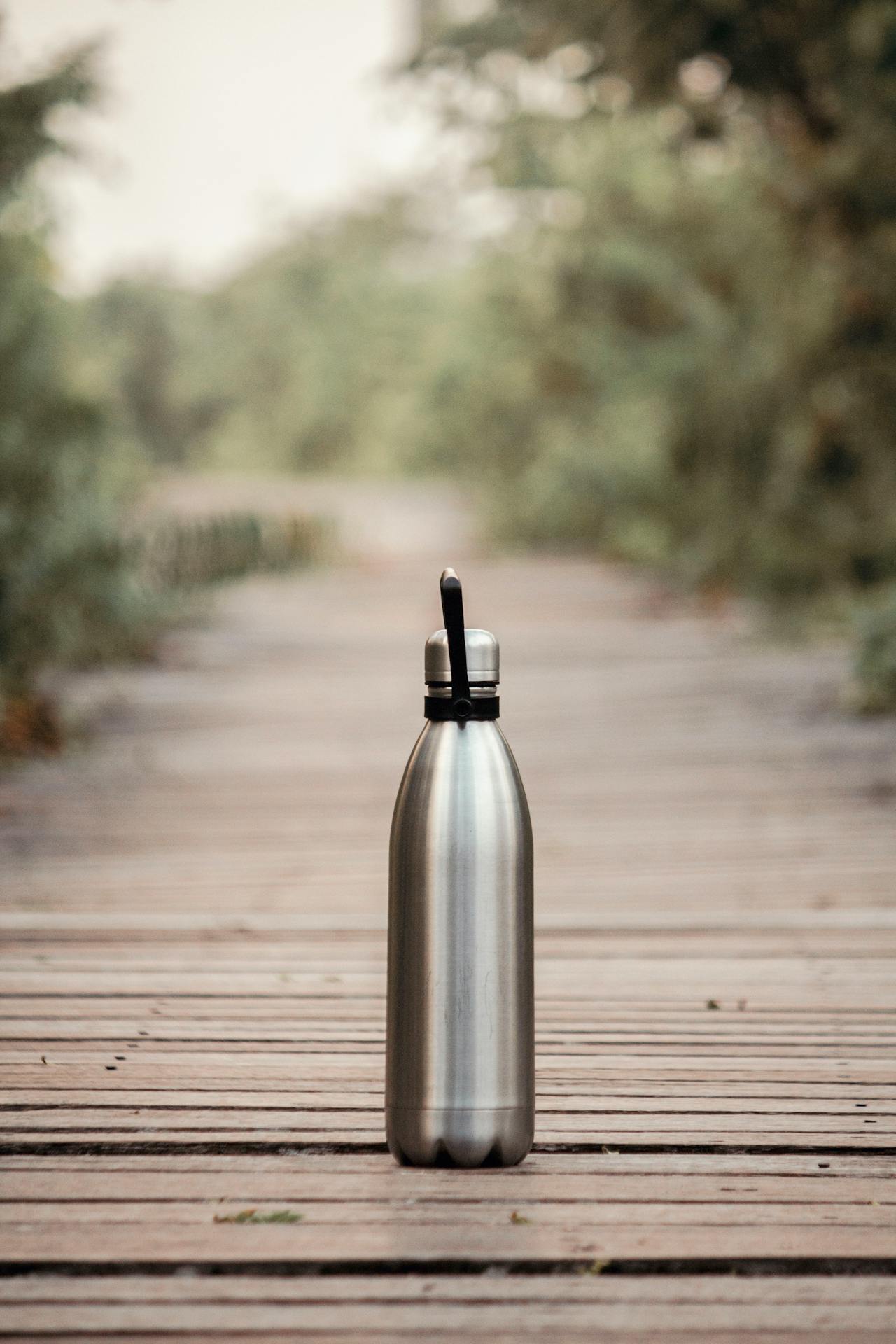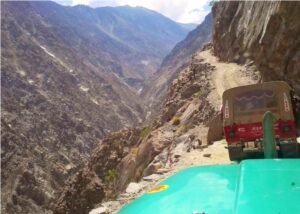Introduction
Before you pack your bags, what are the 5 rules of zero waste? Understanding these five simple principles can help you travel more responsibly, especially in a country like Pakistan where the natural beauty is unmatched—but also increasingly vulnerable to pollution. From scenic valleys in the north to historical sites in the south, Pakistan offers unforgettable experiences. But many popular destinations lack proper waste management systems, and even one careless traveler can leave behind lasting damage. That’s why learning how to minimize your waste while traveling isn’t just thoughtful—it’s essential. In this post, we’ll break down the 5 core zero waste rules and show you how to use them during your journeys through Pakistan. Whether you’re heading to the mountains, deserts, or beaches, you’ll find easy, practical ways to reduce your impact and travel with purpose.
Table of Contents
Why Zero Waste Travel Matters in Pakistan
Pakistan is one of the most naturally diverse countries in the world, blessed with snow-covered mountains, lush green valleys, deserts, rivers, and a long coastline. From the peaks of the Karakoram to the shores of Gwadar, every region offers unique experiences for travelers. But with the rise in domestic and international tourism, there’s also been a rise in a major problem—waste pollution.

Pakistan’s Growing Tourism and Its Environmental Impact
In recent years, Pakistan has seen a tourism boom, especially in northern areas like Hunza, Swat, and Skardu. While this brings economic benefits to local communities, it also brings plastic bottles, food wrappers, disposable cups, and other forms of non-biodegradable waste to places that don’t have the infrastructure to manage them.
Many of these areas have no proper waste disposal or recycling systems. Trash often ends up in rivers, forests, and on mountain trails, damaging ecosystems and endangering wildlife. Worse, open burning of waste in tourist spots contributes to air pollution and health hazards for nearby communities.
Why Zero Waste Travel Is the Solution
Zero waste travel is not just a trend—it’s a necessity. It encourages travelers to be mindful of what they consume, how they dispose of it, and how their choices affect the environment. By following the five rules of zero waste, travelers can drastically reduce their footprint and help preserve Pakistan’s natural beauty for future generations.
Here’s how your eco-conscious choices matter:
- Protect natural landscapes like Fairy Meadows, Deosai, and Khunjerab Pass from becoming dumping grounds.
- Support local communities by buying sustainable and package-free products.
- Reduce pressure on fragile ecosystems that cannot absorb modern waste like plastic and Styrofoam.
- Set an example for other travelers and promote environmental awareness in the regions you visit.
A Cultural and Religious Perspective
In Pakistani culture and Islam, cleanliness is deeply valued. “Cleanliness is half of faith” (Hadith). Practicing zero waste aligns with this principle, reinforcing respect not only for nature but also for the values of the people and places you encounter during your journey.
A Small Change, A Big Impact
Even the smallest changes—like carrying your own water bottle, refusing a plastic straw, or packing your own snacks—can have a positive ripple effect. Imagine if every traveler in Pakistan made just one zero waste choice per day. The collective impact would be enormous.
What Are the 5 Rules of Zero Waste?
The concept of zero waste is based on a simple but powerful framework known as the 5 R’s: Refuse, Reduce, Reuse, Recycle, and Rot. These five rules are the backbone of a sustainable lifestyle and especially useful when you’re traveling. They help you make conscious decisions that minimize your environmental footprint—whether you’re exploring the bustling cities of Pakistan or trekking through remote mountains.
Let’s break down each of the 5 rules of zero waste and see how you can apply them to your travels.
1. Refuse – Say No to What You Don’t Need
Refusing is about preventing waste before it even enters your life. This step is the first and most important because it stops unnecessary items—especially single-use plastics—from ever being used in the first place.
How You Can Refuse While Traveling:
- Say no to plastic bags, straws, or disposable cutlery.
- Refuse freebies like brochures, pens, or promotional items from hotels or vendors.
- Politely decline hotel toiletries if you brought your own eco-friendly versions.
2. Reduce – Minimize What You Do Need
Reducing means being intentional about the things you do use or bring with you. The goal is to consume less and travel lighter, which is not only good for the environment but also more convenient for you.
How to Reduce as a Traveler:
- Pack only essentials and choose multi-purpose items.
- Opt for digital maps and guides instead of paper versions.
- Share resources when possible (e.g., carpooling or group cooking when camping).
- Choose accommodations that follow sustainable practices.
3. Reuse – Choose Reusables Over Disposables
Reusing is about replacing single-use items with ones you can use again and again. When you bring your own reusables, you avoid contributing to the plastic waste that is commonly found in many tourist destinations in Pakistan.
Reusables to Pack for Zero Waste Travel:
- A reusable water bottle with a filter (safe for areas with uncertain water quality).
- Travel-friendly utensils made of bamboo or stainless steel.
- A cloth shopping bag for groceries or souvenirs.
- A reusable food container for snacks or leftovers.
4. Recycle – Recycle What You Can’t Refuse, Reduce, or Reuse
Recycling is the fourth rule and should only come into play after you’ve already tried to refuse, reduce, and reuse. Recycling gives items a second life, but it’s not a perfect solution—especially in Pakistan, where recycling systems can be inconsistent.
How to Recycle Wisely While Traveling:
- Separate your waste when possible (especially plastic and paper).
- Ask locals or hotel staff if they know nearby recycling drop-off points.
- Support businesses that use recycled or upcycled materials.
5. Rot – Compost Your Organic Waste
Rot, or composting, refers to the breakdown of organic waste like food scraps, peels, and biodegradable materials. Instead of sending this waste to landfills where it emits methane (a harmful greenhouse gas), composting returns nutrients to the earth.
Composting Tips for Travelers:
- Store your food waste in a compostable bag and dispose of it at an eco-lodge or with someone who composts.
- Eat mindfully to reduce leftovers.
- Choose accommodations with composting practices (many eco-lodges in Pakistan now offer this)..
The 5 R’s in Action – A Traveler’s Quick Guide
| Rule | Action You Can Take While Traveling |
|---|---|
| Refuse | Decline plastic straws and freebies |
| Reduce | Pack light and use digital guides |
| Reuse | Carry a water bottle and tote bag |
| Recycle | Sort waste and ask about recycling |
| Rot | Compost your food scraps when you can |
Zero Waste Travel Essentials – Your Packing List
Traveling with zero waste in mind doesn’t mean sacrificing comfort—it just means packing smarter. When you’re exploring Pakistan, especially in remote or less-developed areas, it helps to be self-sufficient and sustainable. A little preparation can help you avoid single-use plastics and reduce your environmental impact while still enjoying the journey.

Below is a complete packing list of zero waste travel essentials—practical, lightweight, and planet-friendly.
Reusable Products – Ditch the Disposables
These are must-haves for any eco-conscious traveler. They replace common single-use items and are easy to carry:
1. Reusable Water Bottle (Preferably with Filter)
- Perfect for staying hydrated without buying plastic bottles.
- Filter bottles (like LifeStraw or Grayl) are ideal for areas with uncertain water quality.
You can buy LifeStraw filter bottle from Amazon.
2. Travel Cutlery Set
- A compact set of bamboo or stainless steel spoon, fork, knife, and chopsticks.
- Helps avoid disposable plastic utensils at food stalls or roadside dhabas.
You can buy bamboo travel cutlery set from Amazon.
3. Reusable Metal or Silicone Straw
- Useful for juices, lassis, or smoothies from street vendors.
- Lightweight and often comes with a cleaning brush.
You can buy metal straw with cleaner from Amazon.
4. Cloth Tote Bag
- Handy for groceries, shopping at local bazaars, or carrying your lunch.
- Folds easily into your backpack and eliminates the need for plastic bags.
5. Reusable Food Container
- Great for storing snacks, leftovers, or even buying street food to-go.
- Choose stainless steel or BPA-free silicone versions for durability.
You can buy Stainless Steel Lunchbox from Amazon.
6. Solid Toiletries
- Switch to solid soap, shampoo bars, and toothpaste tablets.
- These last longer, are plastic-free, and don’t spill in your bag.
You can buy eco-friendly shampoo bars from Amazon.
7. Bamboo Toothbrush
- A biodegradable alternative to plastic toothbrushes.
- Easily available from zero-waste shops in Pakistan and online.
You can buy biodegradable bamboo toothbrush from Amazon.
8. Cloth Napkin or Handkerchief
- Use for wiping hands, wrapping food, or even as a mini towel.
You can explore long-lasting, non-plastic alternatives at Life Without Plastic.
Digital Tools – Go Paperless
Reducing paper waste is another part of the zero waste philosophy. Use your phone or tablet to keep things light and eco-friendly.
1. Offline Maps
- Use apps like Maps.me or Google Maps offline for navigation instead of printed maps.
2. E-tickets & E-documents
- Avoid printing bus/train tickets or hotel bookings. Keep digital copies instead.
3. Eco-Travel Apps
- Apps like HappyCow (for vegan food), Too Good To Go (food rescue), and TrashOut (waste mapping) support low-impact travel.
Sustainable Clothing – Travel Light & Ethically
Being zero waste also means being mindful of your clothing choices. Pack only what you need, and choose ethical, long-lasting items.

1. Clothing Made from Natural Fibers
- Choose cotton, hemp, bamboo, or linen. These are breathable and biodegradable.
2. Multipurpose Outfits
- Go for versatile pieces that can be layered or worn in multiple settings (urban & outdoor).
3. Eco-Friendly Footwear
- Choose shoes made from recycled or vegan materials.
- Look for durable hiking sandals or sneakers designed for long walks and mixed terrains.
4. Reusable Laundry Kit
- Bring biodegradable detergent sheets or soap bars for washing clothes.
- A travel clothesline and a reusable laundry bag also help you stay sustainable on the go.
You can buy biodegradable travel detergent sheets from Amazon.
Optional (But Helpful) Extras
These extras make your travel smoother and even more sustainable:
- Solar-powered charger – Ideal for off-grid areas.
- Reusable menstrual products – Menstrual cups or cloth pads reduce waste and are travel-friendly.
You can buy reusable menstrual cup from Amazon.
- Compostable trash bags – Useful for collecting waste until proper disposal is available.
- Small first aid kit – Keep it compact and refillable to avoid single-use packages.
Where to Buy Zero Waste Products in Pakistan
Zero waste essentials are now becoming easier to find locally. Some Pakistan-based eco-friendly stores to consider:
- EcoPak.pk
- Zero Waste Pakistan
- Green Box Pakistan
- Daraz (search for reusable travel gear)
For international readers Eco Bravo is the perfect platform for eco-friendly products.
If you’re a travel blogger or business owner looking to reduce your digital footprint, consider switching to green web hosting like Reforest Hosting, which plants trees for every website hosted.
Final Thoughts: Traveling Pakistan the Zero Waste Way
Zero waste isn’t just a lifestyle—it’s a mindset. It’s about making intentional choices that respect the environment, support local communities, and help preserve the natural beauty of Pakistan for future generations. Whether you’re trekking through the Himalayas, exploring ancient ruins, or relaxing on a beach in Balochistan, your small efforts can lead to big environmental impact. By following the 5 rules of zero waste—Refuse, Reduce, Reuse, Recycle, and Rot—you become more than just a tourist. You become a steward of the land, a responsible traveler who gives back more than they take.
Book eco-conscious stays in Pakistan through trusted platforms like Hotels.com and Expedia, and filter your search using terms like ‘eco-lodge’ or ‘green certified’.
FAQ
Q3. Can I follow zero waste while traveling in remote Pakistan?
Yes, by packing reusables like a filtered water bottle, solid toiletries, and food containers, you can minimize waste even in remote areas.
Q2. Is it hard to follow all 5 zero waste rules?
Not at all! Start small with refusing plastics and reusing items. Progress is more important than perfection.
Q3. What if there’s no recycling or composting nearby?
Focus on refusing and reducing waste. Carry items back to cities for proper disposal when needed.




